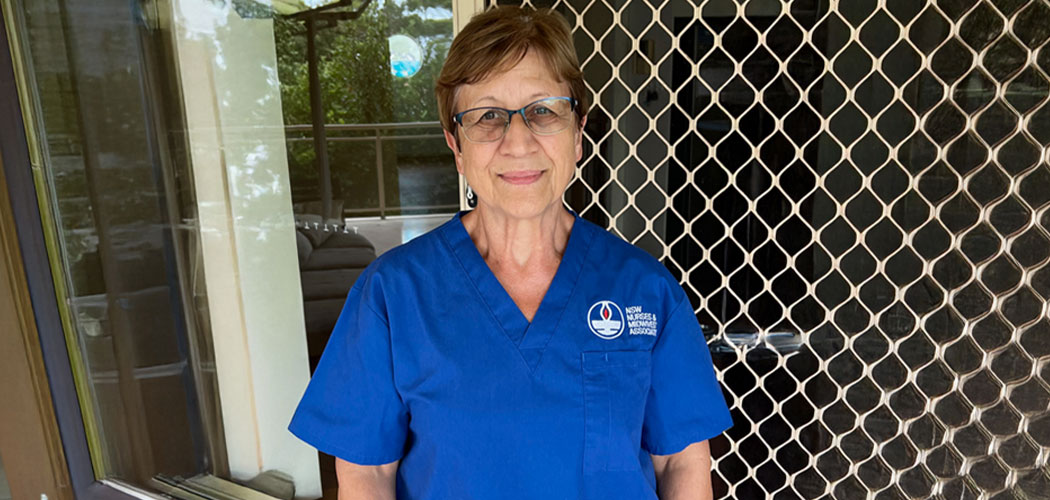NSW Assistant in Nursing (AIN) Marta Frasca is among thousands of aged care workers across Australia now experiencing the direct benefits of recent wage increases flowing through the sector.
“I no longer have to pay my electricity bill or car registration in instalments or call up to request an extension – I can pay upfront, so, that is a big help,” the New South Wales Nurses and Midwives’ Association (NSWNMA) member says.
The ongoing pay rises are a result of the ANMF’s landmark Aged Care Work Value Case at the Fair Work Commission (FWC), which sought to improve award wages for aged care workers by highlighting the historic gender-based undervaluation of nursing and midwifery care work.
Following the FWC’s interim decision, minimum award rates for AINs and PCWs like Marta were lifted by 15% in July 2023. Last March, the FWC made its final decision for these aged care employees, taking the total increase for an AIN/PCW with a Certificate III to 23%.
The FWC determined that AINs/PCWs should receive their final pay increases over two tranches, from 1 January 2025 and 1 October 2025. The Albanese Labor Government has provided additional funding to support providers to deliver higher award wages for aged care workers in line with the FWC decisions on the Aged Care Work Value Case. Handing down its Budget last week, the government announced it is investing a further $2.6 billion to deliver pay rises for aged care registered nurses and enrolled nurses.
Marta has more than two decades of experience in the sector and currently works at a 160-bed nursing home at Killarney Vale on the NSW Central Coast.
While working under an enterprise agreement, Marta and her colleagues have received pay rises aligned with the Aged Care Work Value Case, including the interim 15% and 4% that came into effect in January this year.
So far, Marta’s pay has jumped from about $25 to $33 an hour. Although it’s eased her own cost-of-living pressures significantly, she says she’s even happier for her younger colleagues with children and big families struggling to make ends meet.
Marta credits the wage boosts with making a real difference in the lives of aged care workers, including a greater sense of recognition and improved staff morale.
“We [staff] are the heart of aged care because without us who is going to look after our older people,” she says.
“We do feel more appreciated and acknowledged. You cannot have an aged care facility without us.”
Despite positive reforms in the sector – such as the introduction of registered nurses (RNs) 24/7 and mandated care minutes – Marta believes more needs to be done. For example, she is among several passionate workers banding together, with the support of the NSWNMA, to ensure her aged care facility declares its aged care minutes responsibilities correctly.
As aged care reforms continue to evolve, Marta remains committed to advocating for fair wages, better working conditions and, most importantly, improved care for elderly residents.
“I really found my path with aged care,” she says.
“It can sometimes be a sad job but they [the residents] consider us family because we’re there with them every day.”









3 Responses
Absolutely beautiful and true thank you for the recognition and acknowledgment of aged care sector and the staff that work in it
Thank you Marta for all you do ♥️
Marta you are a wonderful person, I’m so proud of you and I’m so happy that you have won the respectful pay that you and all NSWNMA aged care members have fought for years to get.